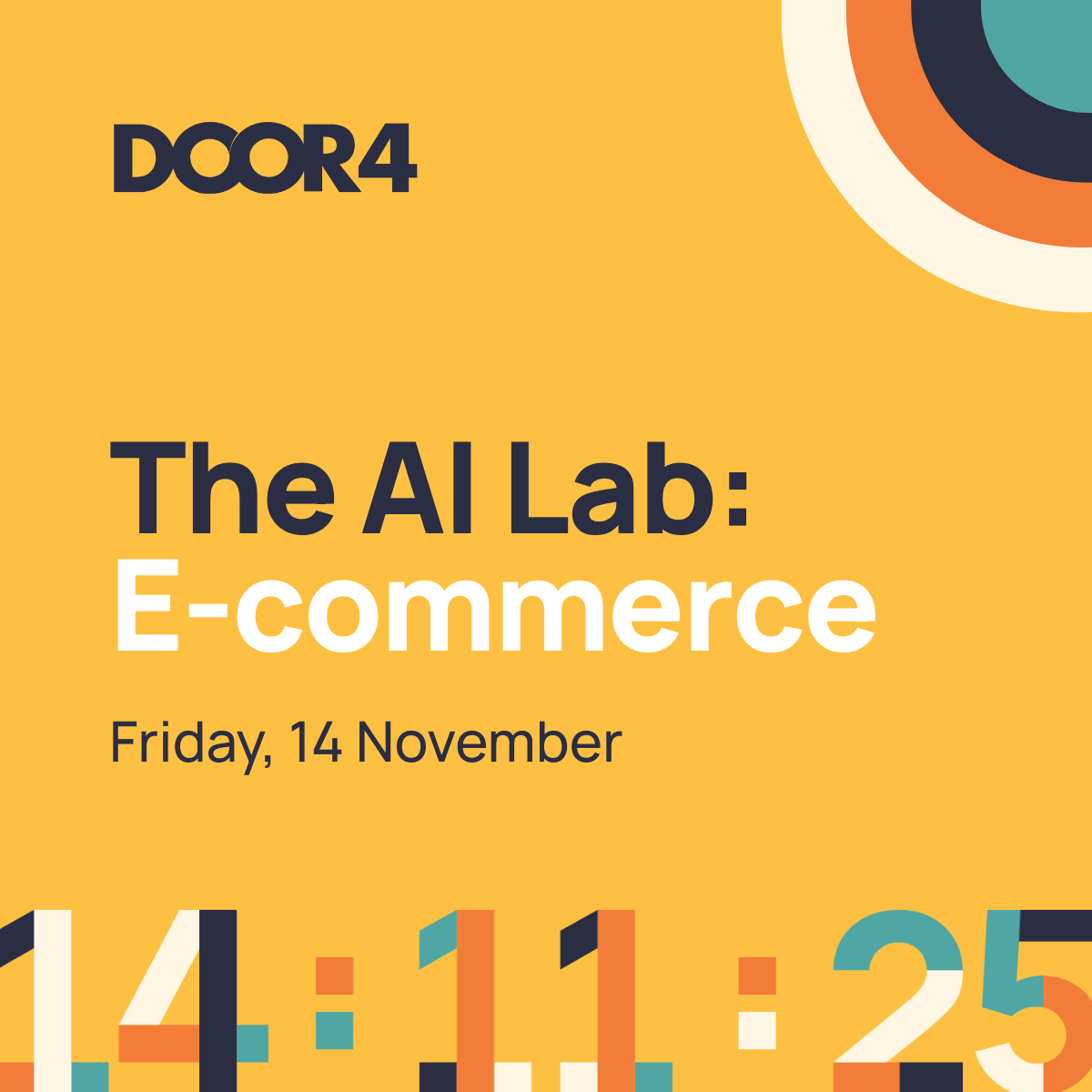Ready to explore the possibilities?
Request a quick call with our team to find out how the Innovation Explorer program can help your business take its next big leap into AI and automation.

Let’s Talk… software development with Ben Thomson
 We’re delighted to be joined by Ben Thomson, founder of Full Metal in 2004 and now celebrating over 18 years of supplying clients with software project management and maintenance.
We’re delighted to be joined by Ben Thomson, founder of Full Metal in 2004 and now celebrating over 18 years of supplying clients with software project management and maintenance.
Leon
Hi Ben – great to have you with us today… Do you want to tell me a little about what Full Metal does?
Ben: Full Metal is a team of professional problem solvers. We work closely with our clients to find out what’s holding them back, then come up with a business-changing software solution to eliminate the problem. And we’re not just tech experts – our team has a solid background in business and commerce. This helps us develop practical software that delivers measurable results.
With a few years of experience, I think it’s fair to say that – in the mid-market at least – there is often some confusion between software development and web development. What’s your take on this?
We see that confusion daily. This stems from the history of software and where this has crossed over with the proliferation of “web”.
Long gone are the days when we were primarily building desktop applications, the sort where you double click an application on your desktop, instead with the majority of our work now being accessed within a browser or mobile application.
This is where the confusion lies. For many, often in the mid-market as you say, web development is the same as software development and often the words are interchangeable. In my experience we are more concerned with the heavier lifting behind the scenes than websites per se. So more software than web, and vice versa for web developers I am sure they are less concerned with being code junkies and favour the web design and associated development that goes with providing a website.
With that distinction in mind – what mistakes do you see businesses making, when engaging with software developers?
As with many businesses now there is a race to the bottom approach and for many companies, they chose solely on a cost basis when the only driving factor should be value driven.
Another topic that comes up time and time again is that of offshore vs. nearshore vs. onshore. Costs tend to drop the further from the UK you venture for your software development partner, however there are signs of a sea change with the introduction of restrictions on R&D tax relief for UK based projects only as of April 2023. It’s definitely not always asked of a selected partner – “where are your development teams based?”
Finally, there is a worry that software development requires a technical lead at a client’s company. Any reputable software development company should become that technical lead or fill the gaps where needed. This leads to a better client relationship, and a better specification, which ultimately delivers a better solution to the problem they hope to fix.
What tips or advice would you give to businesses when engaging with software businesses to solve their challenges?
- Always make sure there is an understandable and complete specification before project kick-off. Often this is called a Software Requirements Specification (or SRS) in the industry
- Understand what is being delivered, and when
- Keep asking questions until you are confident the deliverables satisfy your internal requirements
- Accept that there will always be some movement in scope
- What happens when the project has been delivered? How will it be supported and maintained?
- Projects are often months of work and people buy from people, so can you work with the personality of the development company?
That’s great guidance, and we’d mirror most of those for web projects that we deliver for our clients Ben. Building bespoke services – websites, software, integration – is complex. How do your bespoke applications compare to off-the-shelf options?
There are a few comparisons we can make.
Unique – with all the will in the world, off-the-shelf solutions are built for the masses, not for your company specifically. In business, being unique is what separates the “me too” crowd from the market leaders. Why be a “me too”?
Cost – the misconception is off-the-shelf is cheaper than bespoke because of the attractive per-seat licensing model. This completely breaks down if you require more and more licences.
Simplicity – bespoke is built using your rules, your way. Why pay for features you won’t use?
Flexibility and Scalability – what happens if your company changes track and needs their software to do something completely different? Off-the-shelf usually means either buying something new or scrapping for a bigger offering. With bespoke, this can usually be achieved by developing in a different direction.
The web development industry has historically been dominated by two platforms – Linux (and its various flavours) and Microsoft/.NET. How does this landscape look in your industry?
As far back as I remember it has always been a heated debate about which is better – Microsoft (the huge commercial big brother option) vs. Linux (the open-source friendly option). That debate still rages on however Microsoft has done extremely well in recent years of removing the barriers to entry with developing using the Microsoft stack.
C# and .NET are open source, with Microsoft taking the guiding seat for the direction it takes. Even Azure, Microsoft’s cloud hosting services, have in recent years dropped in price to be comparable with their Linux counterparts, once again reducing the barrier to entry.
Of course there are those who are firmly in one of the camps, I think there is room for both and we tend to find those that are already bought into the idea of Microsoft (365 licences for example), tend to request a Microsoft stack more often.
We are then talking about developer costs – unfortunately for both sides of the argument, experienced developers in each demand high salaries so it’s a bit of a moot point!
Going back to what we discussed just now about on-shoring and off-shoring. Cost is always going to be a factor in any development of course. How do you evaluate project valuation and cost with your clients? Do you find yourself calculating ROI and productivity increases?
That’s a top priority when we do a Discovery session, however it is very reliant on a client being honest and upfront about current costs and timings for their current method. This can come into the conversation much sooner if they are looking at off-shoring the work, as this tends to be our biggest competitor.
Sometimes it is very easy to show the ROI, sometimes not so much (especially if this is a new process line or product). That’s why we talk about total cost of ownership as well, as this can help align budget thoughts.
One question we would always ask if a client is considering off-shoring – have you ever run a team of developers before? Dedicated project management is usually lacking and bad communication is baked into that. That means clients will spend a lot more time managing the managers, so it’s not as cut and dry as it looks.
And finally… what do you know now, that you wish you knew when you started out in 2004?
I think some advice I would tell my younger self is to keep going. We have had many bumps in the road: at least two recessions, “that” nasty virus and an ongoing cost-of-living crisis.
Hold your nerve, ride it out, the sun always shines above the clouds.
Thanks for your time, Ben. It’s great to get your take on the software industry. As you say… keep going!
Find out more about Full Metal
Connect with Ben Thomson on LinkedIn
-
 28.11.2022|Leon Calverley talks the present and future of marketplaces with expert Chris Ball.
28.11.2022|Leon Calverley talks the present and future of marketplaces with expert Chris Ball. -
 08.12.2022|Leon Calverley talks about the past, present and future of communications with Tony Garner.
08.12.2022|Leon Calverley talks about the past, present and future of communications with Tony Garner. -
 13.12.2021|User experience (UX) works rationally with theories of consumer psychology to optimise buyer journeys. Interesting, when you consider customers make purchasing decisions using ‘the emotional brain’.
13.12.2021|User experience (UX) works rationally with theories of consumer psychology to optimise buyer journeys. Interesting, when you consider customers make purchasing decisions using ‘the emotional brain’.
Door4 opinions and insight.
We have a lot to talk about.Our latest articles, features and ramblings.
We explore performance marketing, AI, communications and optimisation.











